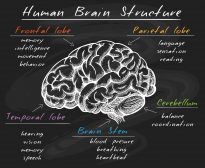Definition
noun, plural: voluntary muscles
A muscle that can be controlled voluntarily
Supplement
Some of the muscles of the body may be controlled voluntarily. Other muscles act below the level of consciousness. Those muscles that can be controlled at one’s will (volition) are called voluntary muscles. Those that are not are referred to as involuntary muscles. The skeletal muscles are voluntary muscles as opposed to smooth and cardiac muscles that are involuntary. The skeletal muscles are striated muscles that are attached to the bones (thus the name). The striations are caused by the presence of transverse markings in the muscle fiber when viewed under the microscope. The striations though are not exclusive to the skeletal muscle fiber; cardiac muscle fiber also has striations. However, the cardiac muscle acts in rhythmic and autonomic contractions. Thus, the cardiac muscle is regarded as a type of involuntary muscle. The skeletal muscles act in general under the volition of an individual and therefore are voluntary. The part of the peripheral nervous system associated with the skeletal muscle voluntary control of body movements is the somatic nervous system. The somatic nervous system is comprised of afferent and efferent nerves. The afferent nerves relay information to the central nervous system whereas the efferent nerves are the ones stimulating muscle contraction of the skeletal muscles.
Compare:
- involuntary muscle
See also:






